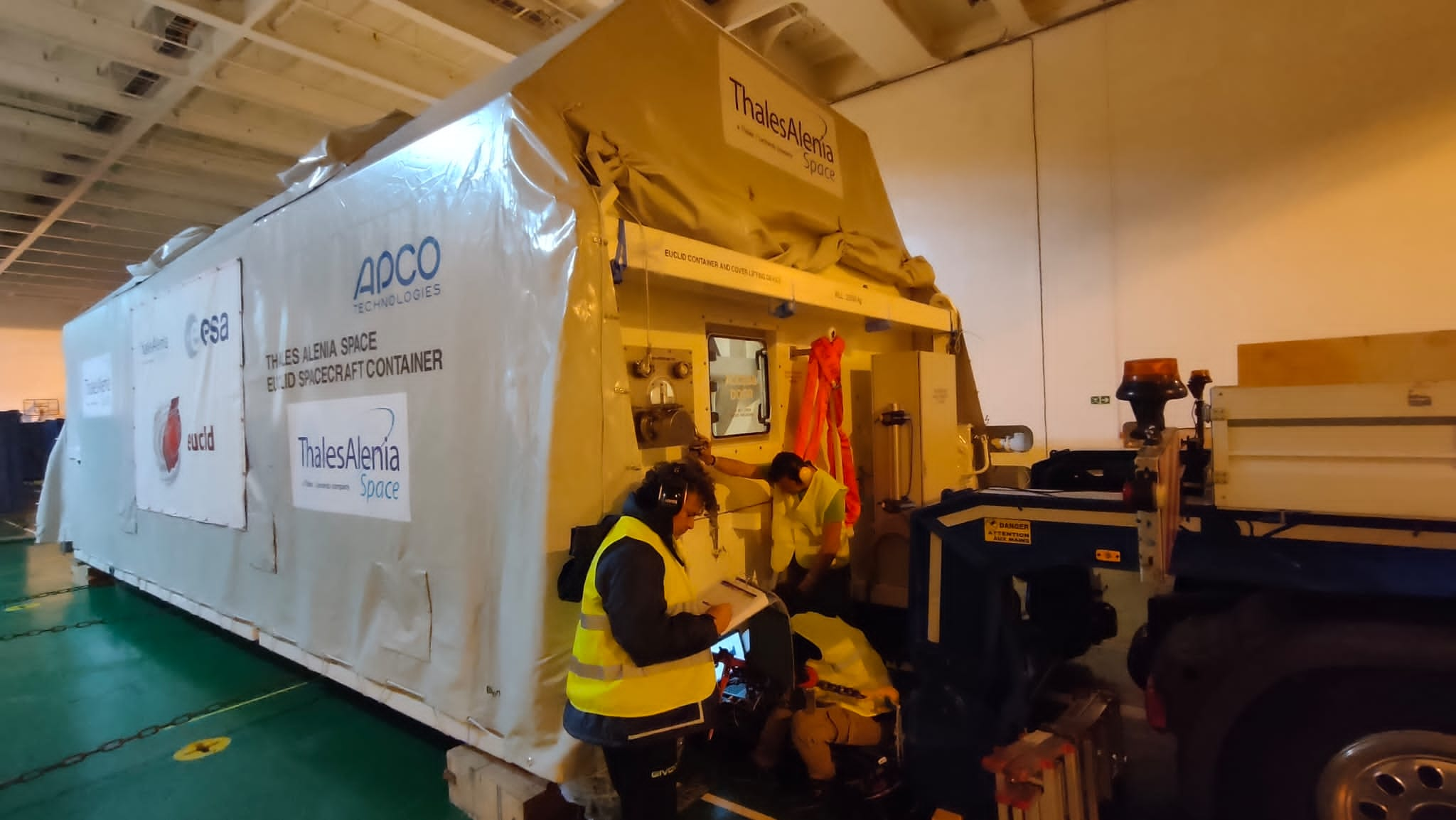The Euclid satellite set sail from the Italian port of Savona on April 15, heading for Port Canaveral in Florida. But it’s not a lonely journey, because Euclid is accompanied by three trusted engineers, tasked with monitoring the satellite and keeping it safe and “alive” throughout the long sea voyage.

Thales Alenia Space's three “watchkeepers” are: Roberto Novo, in charge of Assembly, Integration and Testing (AIT) Quality Control and Marco Rinaldi and Roberto Randazzo, both AIT thermomechanical engineering specialists on Euclid.

We talked with them during the trip to find out what it’s like to be chaperoning a groundbreaking satellite across the Atlantic.
“Our job is to maintain the spacecraft environment under ideal conditions 24-7,” explains Roberto Novo. “We continuously monitor the spacecraft and its transport container from our office, ensuring that the nitrogen tanks are properly connected to continuously flush the satellite and maintain the right conditions inside the container. We need to be constantly on alert, to detect any possible failure and adjust the setup when necessary. Our main task is to ensure the satellite meets ESA European Cooperation for Space Standardization (ECSS) cleanliness protocols and that its temperature remains stable.”
For the team, the journey also meant facing the challenge of being “lost at sea” for at least two weeks.
“At first, it seemed like a mystical journey, something very different from our routine days in the clean room or the office,” recalls Marco Rinaldi. “As the adventure unfolded, we were alone, far away from our friends and families and from our everyday lives. However, we had our teammates and the entire ship’s crew was very friendly, helping us deal with any obstacles and keeping our spirits up. Of course, we were already familiar with complex environmental conditions and challenging projects – like Euclid!”
Roberto Randazzo adds, “With dedication, resilience and teamwork, we’re heading towards our final destination. We all have a feeling of accomplishment and we’re proud of our contribution to the Euclid satellite program. In fact, we’re all very attached to this project that will enhance scientific knowledge, and we wish Euclid all the best as it embarks on its launch campaign and begins its journey to push the boundaries of scientific discovery. Euclid will undoubtedly make a great contribution to our understanding of the Universe. Good luck, Euclid, we’re all rooting for your success and we’re honored to have shared a small part of your long and fruitful voyage!”

About the Euclid mission
By examining billions of galaxies up to 10 billion light-years away, and covering more than a third of the sky, Euclid is set to unlock a wealth of knowledge that will shape our understanding of the cosmos. Scheduled for launch in July, this one-of-a-kind satellite will study the Universe’s dark matter and dark energy. Fair wind to our beloved satellite!

